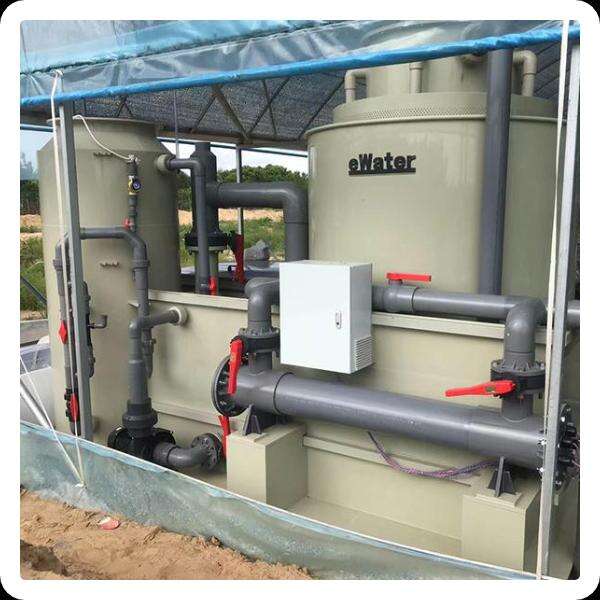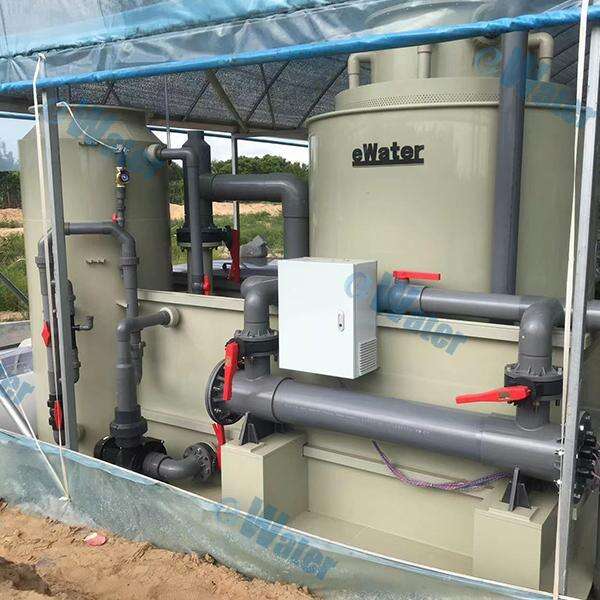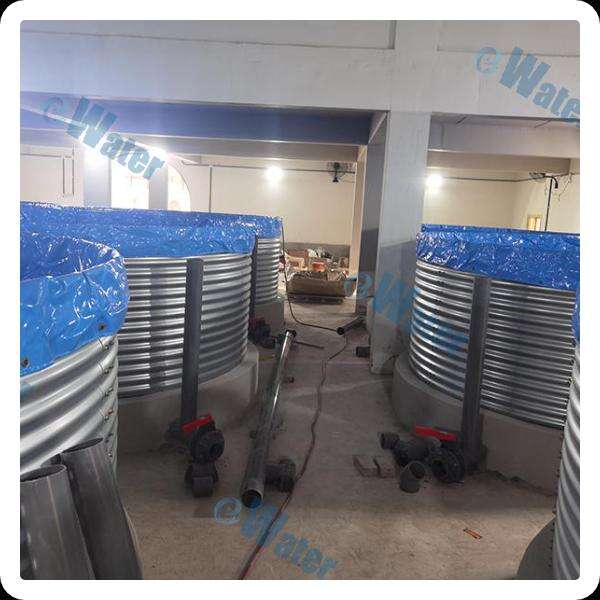Domus NegotiumCultura Piscium in Ghana — Modus Sustinibilis et Securus Provehenendi Necessitates Piscium
Aquacultura, productio piscium per agricolam, piscium agricola per decennia fuit reputata tam efficientis quam sustinibilis modi praebendi altum petitionem in piscium consumptione in Ghana. Piscium agricola habet commoditates essendi facile ad implementandum, producendo superiores qualitates et tutiores producta et creando opportunitates pro innovativioribus agricolae administrationis practicis. Hoc est proprium articulum disserentem de commoditatibus piscium agricolae et quomodo proficisci aut uti in variis servitiis.
Commoditates Agricolae Piscium in Ghana
Comparatum cum piscatione tradicionali, piscis aquacultura multos pros entes afferit. Unus ex his est simpliciter minus superpiscatio: piscium cultura adiuvat protegendo pisces ferarum. Simul, piscicultores possunt influere qualitatem cibi per eos pascendo dieta sana et vitando contaminationem. Itaque, quando hi pisces superiores a piscicolis colliguntur vel extrahuntur, bonum pretium in mercato consequi possunt, quod eos lucrativos reddit et in negotium lucrativum versus eam de aquacultura tradicionali transformat.
Praeterea, piscium cultura ut respondens sustinibilis crescenti necessitati plus piscium in Ghana fungitur. Piscium cultura agricolis supplicium fidum et continuum piscium praebet, quod in satisfactione demandae populatio nis iuvabit. Et hoc non solum levat pressionem in stock ferarum sed etiam securitatem alimentariam et economicam in Tanzania promovet.
Revolutio in Piscium Cultura Praxis
Per paucos annos praeteritos, agricolae Ghanenses plures vias innovativas in piscium cultura susceperunt. Una ex his innovationibus est introductio systematum aquaculture recirculationis. Est systema ubi pisces in tancis coluntur et aqua post renovationem eis redditur per filtrationis unitates quae removet fœces et oxygenum praebet. Hoc systema minimalisticum et morborum minuens non solum est sustinibile sed etiam sane saluberrimum modum piscium colendi praebet.
Agricolae etiam novas vias inveniunt ad piscium productionem et exitum augendum. Post technologiam, studia et alias actiones huius generis peragendas, agricolae possunt modernas technicas generationis cum melioratis qualitatibus in lucem edere tam pro frugum productione quam pro melioribus mechanicis controuli morborum et sustinibilibus praxis agriculturae. Hi progressus non solum agricolarum exitus augebant sed etiam praestant advantage pro sectoris evolutione aquaculture in Ghana.
Piscicultores ghanenses adhaerent protocolis securitatis, ut pisces eorum in aquis pollutis cum chemicis nocivis non alantur. Idem testatores pisces ex agris probant ut standardibus securitatis respondeant. Qualitas et recentia piscium inspiciuntur antequam ad clientes tradantur, ut solum pisces tutores et puri in manus eorum perveniant.
Praeterea, piscificia tanquam loca tuta non solum pro piscibus sed etiam generale curam securitatis habemus. Piscicultores etiam certum faciunt ut locum operis tutum suis operariis praebent et praecepta de solidis dejectis apte sequuntur, ut circumstantia natura bene curetur. Hae prioritates in processu industriae piscatoria permittunt ut pisces ghanenses productum tutius tradant, dum sustinentiam ambientalem servant; piscicultura eorum semper progreditur.

Cum pisces agricolae vere salutem afferant, nunc videntur agnoscere non posse; et super modo generandi atque curandi diversitate tamen. Pisces agricolae vendi possunt recentes ad mercatus locales et coenacula, vel elaborari in varios pisces productos exportandos qui agricolis accessum ad novas venas reddent per ampliorem clientelam attingendam. Praeterea, praebet cultura piscium supplicium constans pro demanda consumerium per annum totum quod possit iuvare evitare variationes temporarias in copia piscium.
Praeterea, pisces agricolae non tantum ad cibum colliguntur. Producta ex piscibus, ut oleum piscium et farina piscium, possunt adhiberi in pharmaceuticis, cosmeticis aut productione pabuli animalis. Haec maximizatio usus gradus spectatur ut incrementum commodorum economicorum agricolis afferat et indicet conversionem ad usum magis sustinibilem piscium resourcarum.
Quomodo Piscium Cultura Utendum
Aquatilis cultura facilis est et a cultoribus omnium modorum initiari potest, sine respectu ad experientiam in hoc sectori. Aquatilis cultura involvit creandum ambiantem pro piscibus per stagnum aut vas quod certum facit bonum crescentem piscium et omnes necessarias res, sicut qualitas aquae et temperatura, eis esse praebendam. Coniunctim cum optima electione specierum piscium ac efficientia pascendi ab agricolis, hoc dabit beneficium additivum in promovendo sanitatem et crescendum piscium.
Cultores fieri possunt etiam meliores custodes piscium suorum adoptando optimas praxis pro aquacultura sustinenda, sicut servando aquam, gerendo stercus et tuendo ecosystema cuius pertinet. Sic faciendo, cultores locales non solum operationes suas efficacius et lucrativius reddere possunt, sed etiam iuvare possunt in creanda industria aquaculturam in Ghana quae sustineatur longe tempore.
Qualitas Servitii Aquatilis Culturae
Qualitas controlis servitii praebiti est clavis in pisciculture ut ambae petitiones consumatorum et requisitiones regulatoriae satisfaciat. Hoc postulat a colonis ut per omnes status altus gradus controlis qualitatis processuum conservetur, a monitore qualitatis aquae usque ad inspectiones sanitatis piscium. Cum protocolis certaminis qualitatis et normis industriae, coloni possunt consumatoribus polliceri quod eorum producta sint tuta et recentia.
Praeterea, praebens meliorem servitium clientibus et bene relationes in industria pisciculture praebet qualitatem servitiorum praestitorum. Coloni debent conari bonas relationes cum praestantibus, distributribus et consumatoribus conservare, ut catena praebendi non saepe interrumpatur, manu aliam laetificans consumatorem. Per praebendum meliorem servitium et per satisfaciendum tuis clientibus, potes excellens dux in campo pisciculture fieri tempore, quod tibi successum longeferreum in hoc mercato afferet.

Applicatio pisciculturae ultra productionem ciborum extenditur et etiam per omnes sectores economiae transgit. Est ulterior captio ex perspectiva resource et residui, cum processanda sint byproducta pisciculturae (oleum piscium in usus industriales & fertilis faciendum ex residuis piscium). Opportunitates oeconomicae provenientes ex expansione aquaculture inveniuntur per varias stadium in catena valoris (e.g., productio, processus, distributio et mercatus).
Praeterea, contributiones oeconomicae piscium culturae sustentant paupertatis reductionem et alimentaria securitas progressus schemata in Ghana. Piscium cultura est pars alimenti accessus et nutritionis interactionum, quia praebet paratis, tuta producta piscium pro communitatibus localibus ad meliorem dietam suam. Praeterea, aquacultura sustenabilis contribuit ad securam crescendi oeconomiam et diversificationem per reponendum vel minuendum consuetudinarias agricolae practicas dum crescit universa resiliencia contra environmentalia difficultates.

In summa, aquacultura videtur esse via factibilis et sustinibilis qua indigemus plus piscium etiam in Ghana. Piscium cultura iuvat agricolas ad conservandas apertas pisces et ita etiam eos iuvat curando de normis suis in securitate, qualitate necnon innovatione cum respiciunt modum quo pisces culti sunt. Piscium cultura, si intensificata et recte administrata ut machina pro sustinibili melioratione; in modo quo exercetur potest radicaliter mutare industriam aquaculturam Ghanae dum attinetur ad objectiva evolutionis oeconomicae et sic solvens quaestiones securitatis alimentariae.
Ingeniores adiuvandi causa ad locum adducimus installationem culturae piscium in Ghana. RAS projecta accuratas impressiones designamus clientibus transmarinis aedificium paratum operis planum practicum, inclusive temporis limitis et necessitates laboris ante installationem, praestare.
eWater, praestans furnitor aquaculture, specializatur in systemate recirculante aquaculture et operatur ut clientibus inveniant aptissimam solutionem pisciculturae in Ghana.
eWater piscicultura in Ghana quaerit innovativas RAS solutiones quae minuunt energiam consumptam et maiorem productivitatem praebent. Realizavit 400 RAS in mundo ad Septembrem 2022.
eWater conficit maximam partem instrumentorum RAS. Anno 2018, creavit filtros rotatorios-drum Gen-3, pisciculturam Gen-2 in Ghana, et systema oxygenationis Gen-3. Praebemus triennalem garantiam quod nos dedicatos sumus ad praebendam optimam qualitatem producti et technicam supportem. Ex anno 2016, fuimus certificati ISO/CE.
Nostrae venditionesque turmae professionales consultationem tuam exspectant.